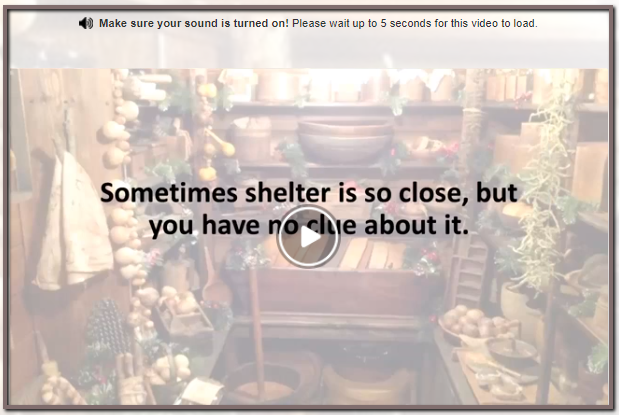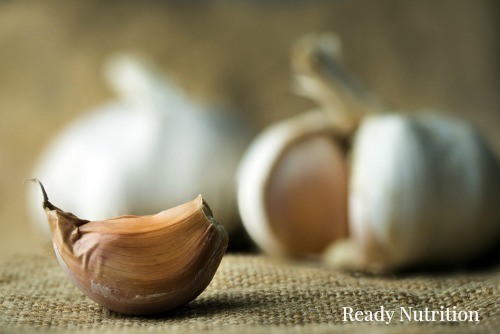Garlic is a superfood. It’s also delicious! If you love garlic, you’ll love the reasons you should be eating more of it especially during the upcoming winter months.
For centuries, garlic has long been hailed as a multi-purpose medicinal herb that treats many ailments. History shows that garlic has been used for over two thousand years ago in many ancient civilizations. This well-trusted remedy served many medicinal purposes including a natural antibiotic, antifungal, used as an antibacterial remedy, to assist with a persistent cough, weakness, and more.

Studies show that because garlic is a superfood and possesses health benefits it should not be ignored – especially in winter.
Garlic’s Nutrition Profile is Like No Other
Garlic contains vitamins C and B6, manganese, selenium and other antioxidants such as allicin. The allicin makes garlic an effective antibiotic! In fact, the anti activity in garlic is also helped by the diallyl disulfide, diallyl trisulfide, and ajoene (a substance created when allicin and diallyl disulfide combine). Preparations of fresh garlic are effective against both gram-negative and gram-positive bacteria. The juice of the herb diluted to a very small degree inhibits bacterial growth. Allicin is unstable, so it quickly converts to other sulfur-containing compounds which are widely thought to give garlic its medicinal properties.
Fun Fact: Allicin contains sulfur, which gives garlic its distinctive smell and taste.
According to the Mayo Clinic:
“Antioxidants are substances that may protect your cells against the effects of free radicals — molecules produced when your body breaks down food or is exposed to tobacco smoke and radiation. Antioxidants, such as vitamins C and E, and carotenoids, may help protect cells from damage caused by free radicals.”
Why You Need Garlic in Winter
Garlic also stimulates the immune system, meaning it’s important to consume it during the cold and flu season. It helps to lower the blood pressure by thinning the blood and decreases the amount of cholesterol in the system. Any bacterial infection in the gastro intestines is negated as soon as raw garlic hits it. In terms of survival medicine, it is highly effective against E. coli, S. aureus, and others such as amebic dysentery and Cryptosporidium. All of these diseases become predominant/prevalent with the advent of a disaster, as freshwater supplies become contaminated.
During these cooler winter months when we have a difficult time getting enough vitamin D, garlic can help give the immune system a little boost. Garlic is effective in preventing the common cold, reducing recovery time, and reducing symptom duration. The herb is available in capsule or tablet form in just about every grocery store, health food concern, and your Wal-Marts and Targets. In addition to the chopped form mentioned earlier, you can purchase it as a solid or aqueous extract in your health food concerns. The daily dosage is up to 8 mg essential oil, according to a previous Ready Nutrition article.
When taking garlic it should be consumed with a meal, as it is a powerful herb that can cause some stomach irritation if taken by itself. Dried and/or powdered garlic is also quite useful and is readily stored in a simple manner. The only consideration there is that it will tend (especially if powdered) to absorb moisture. Should this happen, crush up the garlic as best you can and either stick it in your dehydrator or in your oven at 160 – 170 degrees F for about 15 – 20 minutes to dry it out.
It is often suggested that fresh garlic is the best as the allicin content remains high.
How To Maximize the Benefits of Garlic
Healthline reported that there are a few things we can do to help us get the most out of each clove of garlic, starting with using fresh garlic. Here are a few ways to maximize the health benefits of garlic:
- Crush or slice all your garlic before you eat it. This increases the allicin content.
- Before you cook with your crushed garlic, let it stand for 10 minutes.
- Use a lot of garlic — more than one clove per meal, if you can.
Why not ‘up your garlic game’ this winter and see if it helps during the dreaded cold and flu season?

*This article is not meant to diagnose, treat, prescribe, cure, or take any action or activity from a medical perspective, and is provided for informational purposes only. Prior to utilizing any information consult with your licensed family physician for permission and approval.
source : Sara Tipton



